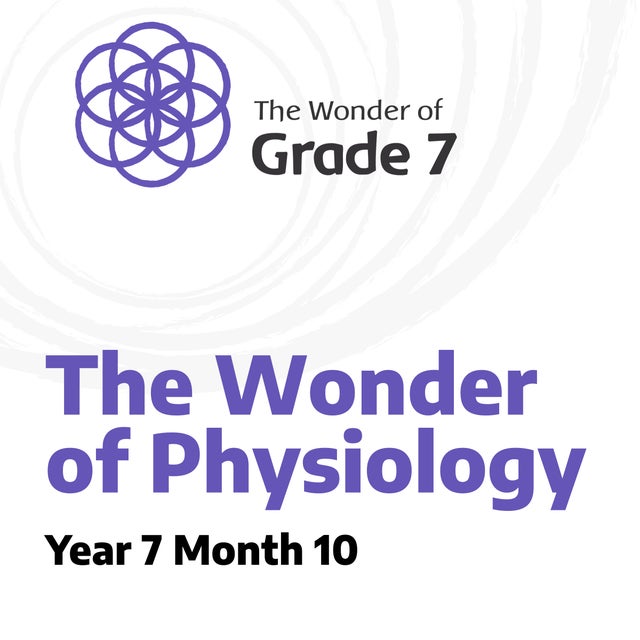- Unit Studies
- >
- Grade 7
- >
- Grade 7 Month 10 The Wonder of Physiology
Grade 7 Month 10 The Wonder of Physiology
SKU:
g7m10
CA$44.00
CA$44.00
Unavailable
per item
The goal of this block is to awaken deep wonder and reverence for the human body's intricacies. Students will be introduced to the body's major systems, with special attention to the transition to adolescence.
This purchase is for 1 month of curriculum and includes access to our members-only area with supporting documents, videos, resources, and community.
Curriculum Areas/Learning Outcomes
Language Arts: Concept: Questioning what we hear, read, and view contributes to our ability to be educated and engaged citizens.
Connection: In week three your child will get to look at stereotypes of pre-teens and decide for themself whether these are based on any evidence.
Science: Concept: Evolution by natural selection provides an explanation for the diversity and survival of living things.
Connection: Your child will be introduced to major organ systems in the human body. They will contemplate questions such as: Why does my body change over time? How do human bodies change over time? How do these changes affect biodiversity?
Concept (from Grade 6 Science curriculum BC): Multicellular organisms rely on internal systems to survive, reproduce, and interact with their environment.
Connection: Your child will explore the human body’s organ systems.
Connection: In week three your child will get to look at stereotypes of pre-teens and decide for themself whether these are based on any evidence.
Science: Concept: Evolution by natural selection provides an explanation for the diversity and survival of living things.
Connection: Your child will be introduced to major organ systems in the human body. They will contemplate questions such as: Why does my body change over time? How do human bodies change over time? How do these changes affect biodiversity?
Concept (from Grade 6 Science curriculum BC): Multicellular organisms rely on internal systems to survive, reproduce, and interact with their environment.
Connection: Your child will explore the human body’s organ systems.
Curriculum Overview
This was one of our favourite units to teach as classroom teachers. It is even better to bring to one or a few children who are experiencing more and more awareness of change in their own bodies. Your will present the skin, digestion, respiratory, circulatory, nervous, and reproductive organ systems in three weeks! You’ll be busy but it’ll be worth it. Lesson plans will guide you on a very brief look at the reproductive organs in the third week; we suggest that this is a great time to go a little further and add sex education as it fits with your values. A wonderful resource that your DW teachers have used, and loved, is called I Find My Star by Tamara Slayton. This is a curriculum book that we have used in the past to bring support to lessons on puberty over an additional three-week period. We are not able to give it a place in this format, but we are deeply inspired by the work and you will hear a hint of it all the way through the lesson plans. If you want to expand your physiology unit to include a deeper look at your child’s experience of puberty, we recommend this book or one like it. Another great resource we use is “Muscles and Bones” by Charles Kovacs. This unit will rely heavily on inspiration from both books.

